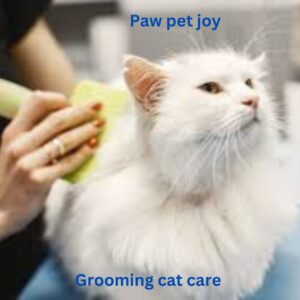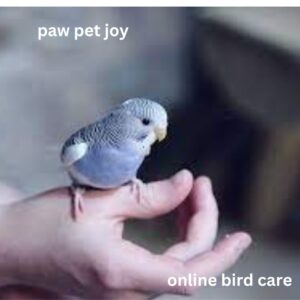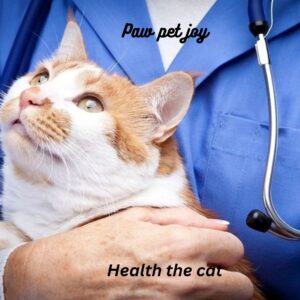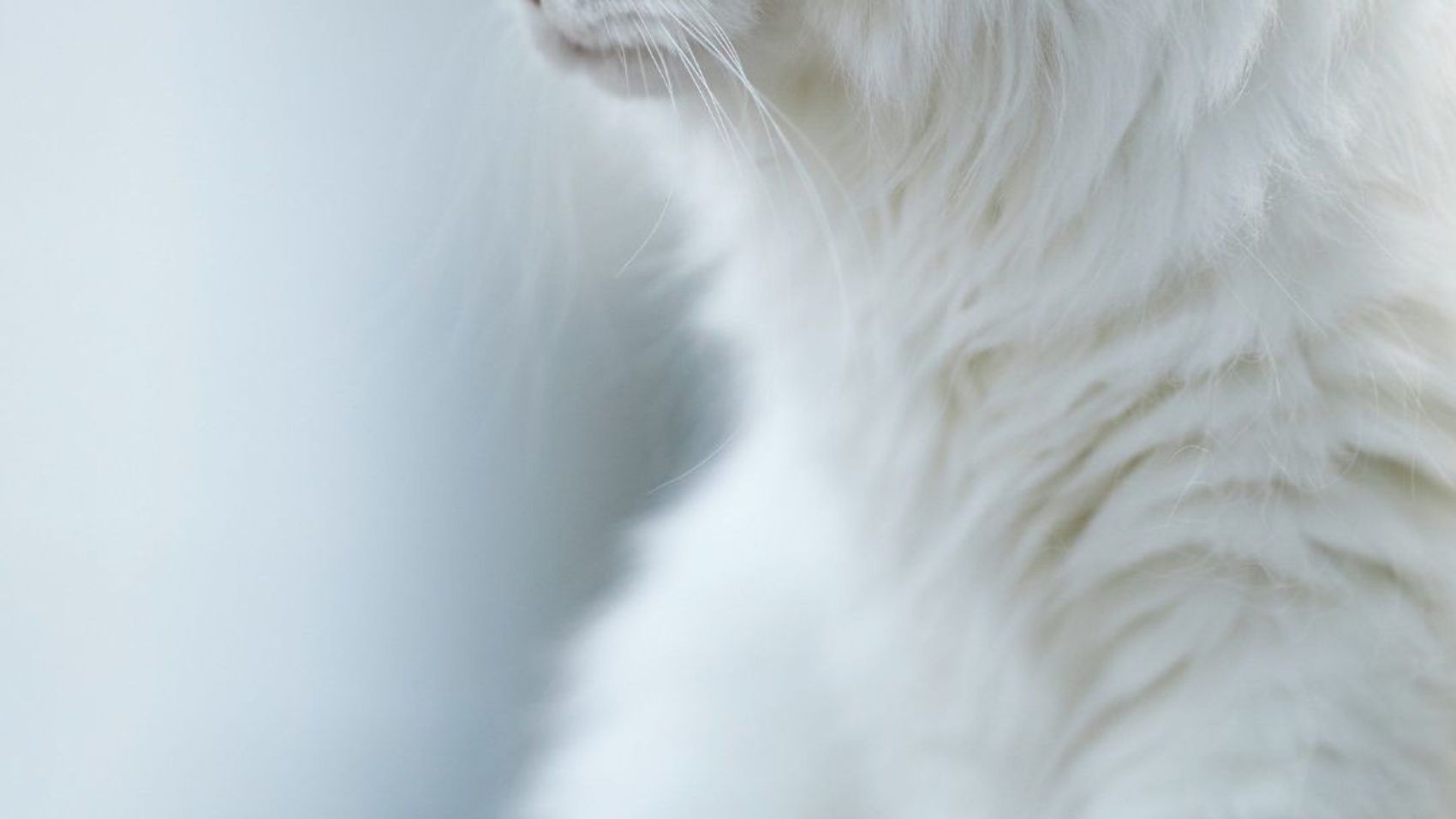We’ll provide tips and practical advice on caring for your older pet and helping them deal with the challenges that come with aging.

Older pet from providing a comfortable living environment to ensuring they receive proper nutrition and exercise, there are many ways to support your pet’s well-being. It’s crucial to establish a good relationship with your veterinarian to monitor your pet’s health and address any concerns that may arise as they age. By making small changes to their daily routine and incorporating some special care techniques, you can enhance their quality of life and give them the love and support they need in their later years. Let’s explore some helpful tips to help you navigate caring for your pet companion.
- Give proper nutrition to older pets
- More frequent vet visits for older pets
- Maintaining oral health in older pets
- Make small changes to your older pet’s environment
- Spend time with older pets
Give proper nutrition to older pets
As our pets age, their nutritional needs change just like ours do. It’s important to provide them with the proper nutrition to help keep them healthy and strong in their later years. Here are some tips to help ensure that your older pets are getting the nutrients they need to thrive.

It’s essential to consult with your veterinarian to determine the best diet for your aging pet. They can assess your pet’s individual needs based on factors like their breed, size, weight, activity level, and any existing health conditions. Your vet may recommend a pet food that is specially formulated for older animals, as these formulas are typically lower in calories, higher in fiber, and contain specific nutrients that support aging joints and organs.
Pay attention to your pet’s weight and adjust their diet accordingly. As pets age, they may become less active and therefore require fewer calories. On the flip side, some older pets may have difficulty maintaining their weight due to factors like dental issues or digestive problems. Your vet can help you determine the appropriate portion sizes and monitor your pet’s weight to ensure they are staying healthy.
Consider adding supplements to your pet’s diet to support their aging bodies. Omega-3 fatty acids, glucosamine, and chondroitin are commonly recommended supplements for older pets to support joint health and reduce inflammation. Probiotics can also help support healthy digestion, which is especially important for older pets whose digestive systems may not be as efficient as they once were.
Be mindful of your pet’s hydration levels, as older animals are more prone to dehydration. Make sure they always have access to fresh, clean water, and consider adding wet food to their diet to increase their moisture intake. If you notice your pet drinking more or less than usual, it could be a sign of an underlying health issue, so be sure to bring it up with your vet.
Pay attention to any changes in your pet’s eating habits, as this could be a sign of a health problem. Loss of appetite, weight loss, vomiting, diarrhea, or changes in stool consistency could all indicate that something is amiss, and it’s important to address these issues promptly. Your vet can help determine the underlying cause and provide guidance on how to adjust your pet’s diet to address the issue.
Giving proper nutrition to your pets is crucial for their overall health and well-being. By working closely with your vet to develop a diet plan tailored to your pet’s individual needs, monitoring their weight, incorporating supplements as needed, and staying attuned to any changes in their eating habits, you can help ensure that your aging pet stays happy, healthy, and comfortable in their golden years.
More frequent vet visits for older pets
As our pets age, it becomes increasingly important to prioritize their health and well-being. One key aspect of caring for older pets is ensuring that they receive more frequent visits to the veterinarian. Aging pets are more susceptible to a range of health issues and may require specialized care as they get older.

Regular vet check-ups are essential for monitoring your pet’s overall health and catching any potential issues early on. As pets age, their immune systems may weaken and they become more prone to developing conditions such as arthritis, diabetes, heart disease, and cancer. By bringing your pet to the vet more frequently, you can stay ahead of any potential health problems and address them promptly.
In addition to regular wellness exams, pets may also benefit from more frequent screenings and diagnostic tests. Blood work, urine tests, x-rays, and other diagnostic tools can help your veterinarian assess your pet’s internal health and detect any abnormalities that may not be immediately apparent. Catching these issues early can often lead to more effective treatment options and a better prognosis for your furry friend.
Another reason why more frequent vet visits are important for older pets is because their nutritional needs may change as they age. Older pets may require a different diet or specific supplements to support their aging bodies and maintain their overall health. Your veterinarian can offer guidance on the best diet for your aging pet and recommend any necessary dietary adjustments.
Regular dental care is another important aspect of caring for older pets. Dental disease is common in aging pets and can lead to serious health problems if left untreated. Your veterinarian can perform regular dental cleanings and recommend at-home dental care routines to help keep your pet’s teeth and gums healthy.
In addition to monitoring your pet’s physical health, it’s also crucial to pay attention to their behavior and overall quality of life. As pets age, they may experience changes in behavior, mobility issues, or cognitive decline. Regular vet visits can help you address these changes and make any necessary adjustments to ensure your pet is comfortable and well-cared for.
Maintaining oral health in older pets
As our beloved pets age, it becomes even more crucial to prioritize their oral health. Older pets can develop dental issues that can lead to pain, discomfort, and other serious health problems if left untreated. Fortunately, there are several ways you can help maintain your older pet’s oral health and keep their smile bright and healthy.

Regular dental check-ups are essential for older pets. Just like us, our pets need regular cleanings and inspections to prevent the buildup of tartar and plaque, as well as to catch any potential issues early on. Your vet will be able to thoroughly examine your pet’s teeth and gums, looking for signs of periodontal disease, tooth decay, oral tumors, and other dental problems that commonly affect older pets. Catching these issues early can help prevent more serious complications down the road.
Regular check-ups, it’s important to establish a good at-home dental care routine for your older pet. This can help maintain their oral health in between vet visits and prevent the buildup of plaque and tartar. Brushing your pet’s teeth regularly is one of the most effective ways to prevent dental issues. You can use a pet-specific toothbrush and toothpaste, making sure to focus on the back teeth where plaque tends to accumulate. If your pet is not used to having their teeth brushed, it may take some time to acclimate them to the process, so be patient and start slowly.
Aside from brushing, there are other dental care products that can help keep your older pet’s teeth clean and healthy. Dental chews, toys, and treats designed to help reduce plaque and tartar buildup can be a great addition to your pet’s oral care routine. Just make sure to choose products that are safe and appropriate for your pet’s age, size, and dental health needs.
Another important aspect of maintaining your older pet’s oral health is monitoring their diet. What your pet eats can have a significant impact on their dental health. Avoid feeding your pet too many sugary or starchy treats, as these can contribute to the development of plaque and tartar. Instead, opt for dental-friendly treats that can help clean your pet’s teeth while they chew. Additionally, incorporating crunchy foods into your pet’s diet can help naturally scrape away plaque and tartar from their teeth.
Be on the lookout for any signs of dental problems in your older pet. Common signs of dental issues include bad breath, swollen or bleeding gums, and difficulty eating, drooling, and pawing at the mouth. If you notice any of these symptoms, it’s important to schedule a vet appointment as soon as possible. Your vet will be able to diagnose the issue and recommend the appropriate treatment to alleviate your pet’s pain and improve their oral health.
By prioritizing your older pet’s oral health and implementing these tips, you can help keep their teeth and gums healthy as they age. Taking care of your pet’s oral health not only improves their quality of life but can also prevent more serious health issues in the future. Remember, a healthy smile is a happy smile for your pets.
Make small changes to your older pet’s environment
Older pet may require some adjustments to their environment to ensure they remain comfortable and safe. Making small changes to older pet’s living space can go a long way in helping them navigate their surroundings with ease. Here are some tips to consider when making modifications to your pet’s environment.

Important to pay attention to your pet’s mobility. Older pets may not be as agile as they once were, so it’s essential to make sure their environment is easily accessible. Consider providing ramps or stairs to help them navigate furniture or steps, particularly if they have joint issues or arthritis. Additionally, consider placing their food and water dishes in easily reachable locations to prevent them from straining themselves.
Another important aspect to consider is your pet’s comfort. As pets age, they may develop aches and pains that can be exacerbated by uncomfortable sleeping arrangements. Invest in a supportive and comfortable bed for your older pet to ensure they have a cozy place to rest. Consider placing their bed in a warm and quiet area of the house, away from drafts or high-traffic areas. Providing soft bedding can also help cushion their joints and provide them with a restful night’s sleep.
It’s important to consider your pet’s safety. As pets age, their vision and hearing may decline, making them more vulnerable to accidents. Make sure their living space is well-lit and free of hazards such as loose cords or slippery surfaces. Consider using baby gates to block off stairs or other areas that may be dangerous for your older pet. Keep an eye on any potential dangers in your home that could pose a risk to your pet and make the necessary adjustments to keep them safe.
Consider making some changes to your pet’s routine to accommodate their changing needs. Older pets may require more frequent bathroom breaks or shorter walks, so be prepared to adjust your schedule accordingly. Make sure to provide ample opportunities for your pet to relieve themselves throughout the day and consider incorporating gentle exercise into their routine to help keep their joints limber.
Don’t forget about mental stimulation. Just because your pet is getting older doesn’t mean they don’t enjoy a good game or puzzle. Provide your pet with interactive toys or puzzles to keep their minds engaged and prevent boredom. Consider incorporating short training sessions or introducing new activities to keep their minds sharp and provide them with a sense of fulfillment.
Making small changes to your older pet’s environment can greatly improve their quality of life and help them age gracefully. By considering their mobility, comfort, safety, routine, and mental stimulation, you can create a safe and supportive environment for your beloved furry friend. Remember, as your pet ages, their needs may change, so be prepared to make adjustments as needed to ensure they live out their golden years in comfort and contentment.
Spend time with older pets
As our beloved pets grow older, they may require more attention and care to ensure they remain healthy and happy. One of the most important things you can do for your older pet is to spend quality time with them.

As pets age, they may become more reliant on their human companions for comfort and companionship. Spending time with your older pet can provide them with the emotional support they need to navigate the challenges that come with aging. Whether it’s sitting with them while they rest, going for a leisurely walk together, or simply engaging in some gentle play, the time you spend with your older pet can be invaluable in maintaining their overall well-being.
Spending time with your older pet allows you to monitor their health and behavior more closely. By observing how they move, eat, drink, and interact with their environment, you may be able to detect any changes that could indicate a health issue. Early detection is key in treating many health conditions, so regular interaction with your older pet can help you stay on top of any potential problems.
Not only is spending time with your older pet beneficial for their physical health, but it also has positive effects on their mental well-being. Older pets may experience feelings of loneliness or anxiety as they age, particularly if they are dealing with health issues or mobility limitations. By being present and engaging with your older pet, you can help alleviate these feelings and provide them with a sense of security and comfort.
Spending time with your older pet allows you to strengthen your bond with them. The relationship between a pet and their human companion is a special one, built on trust, love, and companionship. As your pet grows older, this bond becomes even more important, providing them with a sense of security and stability in their later years.
One of the simplest ways to spend time with your older pet is to incorporate them into your daily routine. Whether it’s cuddling with them while you watch TV, including them in your morning or evening routines, or taking them with you on errands or outings, finding ways to include your older pet in your daily life can help strengthen your bond and make them feel valued and loved.
In addition to spending one-on-one time with your older pet, you may also want to consider involving them in activities that cater to their specific needs and abilities. For example, if your older pet has mobility issues, you could provide them with a comfortable bed or blanket to rest on while you work or relax nearby. If they enjoy being outside but struggle with long walks, you could take them for shorter, leisurely strolls through the neighborhood.
Spending time with your older pet is a simple yet essential way to care for them as they age. Not only does it provide them with the love and attention they crave, but it also allows you to monitor their health, support their mental well-being, and strengthen your bond with them. So, make it a priority to spend quality time with your older pet each day, and you’ll both reap the benefits of a strong and loving relationship for years to come.
FAQ: What qualifies as an “older” pet?
Answer: While the definition of “older” varies depending on the species and breed, pets are generally considered seniors around the age of 7 for dogs and 10 for cats. However, larger breeds tend to age faster than smaller breeds, and individual health factors may also influence when a pet is considered older.
FAQ: What special care do older pets require?
Answer: Older pets often require special care tailored to their changing needs, including regular veterinary check-ups, a nutritious diet formulated for senior pets, moderate exercise, and appropriate accommodations such as orthopedic bedding. Additionally, older pets may need adjustments to their environment to accommodate reduced mobility or sensory changes.
FAQ: How can I help my older pet stay mentally stimulated?
Answer: Keeping an older pet mentally stimulated is important for their overall well-being. You can provide enrichment activities such as puzzle toys, interactive games, and gentle training sessions to keep their minds active. Additionally, spending quality time with your pet through cuddling, grooming, and social interactions can help prevent boredom and cognitive decline.
FAQ: What are common health issues in older pets?
Answer: Older pets are more prone to certain health issues such as arthritis, dental disease, kidney disease, diabetes, cognitive dysfunction, and cancer. Regular veterinary check-ups and proactive management of chronic conditions can help detect and address health issues early, improving your pet’s quality of life as they age.
FAQ: How can I ensure my older pet remains comfortable and happy?
Answer: To ensure your older pet remains comfortable and happy, provide them with a warm and quiet resting area away from noisy or high-traffic areas. Offer plenty of opportunities for gentle exercise and mental stimulation while respecting their limitations. Pay attention to changes in behavior or appetite, and consult with your veterinarian promptly if you notice any signs of discomfort or decline. Above all, continue to show your older pet love, attention, and affection as they age gracefully alongside you.
Conclusion:
Taking care of older pets requires a little extra love and attention, but the rewards are well worth it. By following these tips and being proactive about your pet’s health, you can ensure that they enjoy their golden years to the fullest. Remember, our pets may age faster than we do, but they are still just as deserving of our care and affection. So, cherish each moment with your loyal older pet and make their senior years as comfortable and happy as possible.
















































